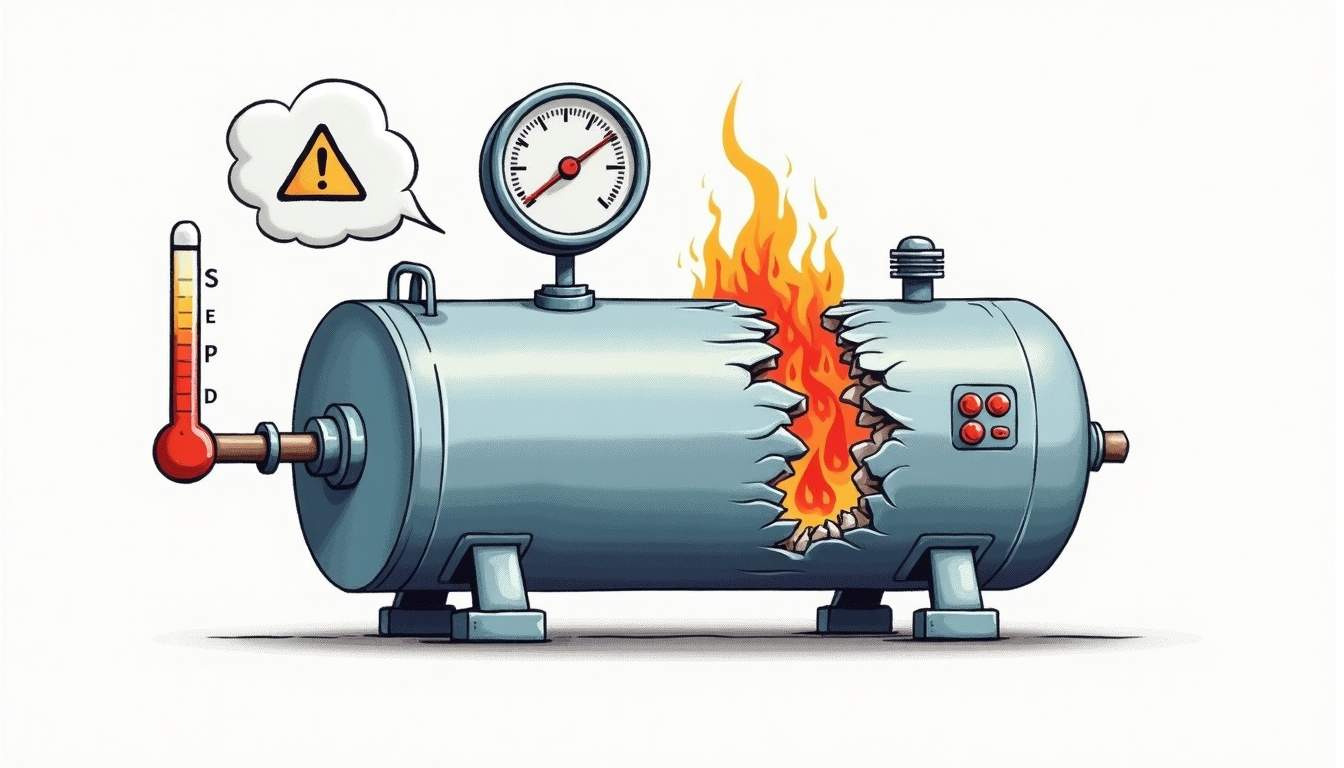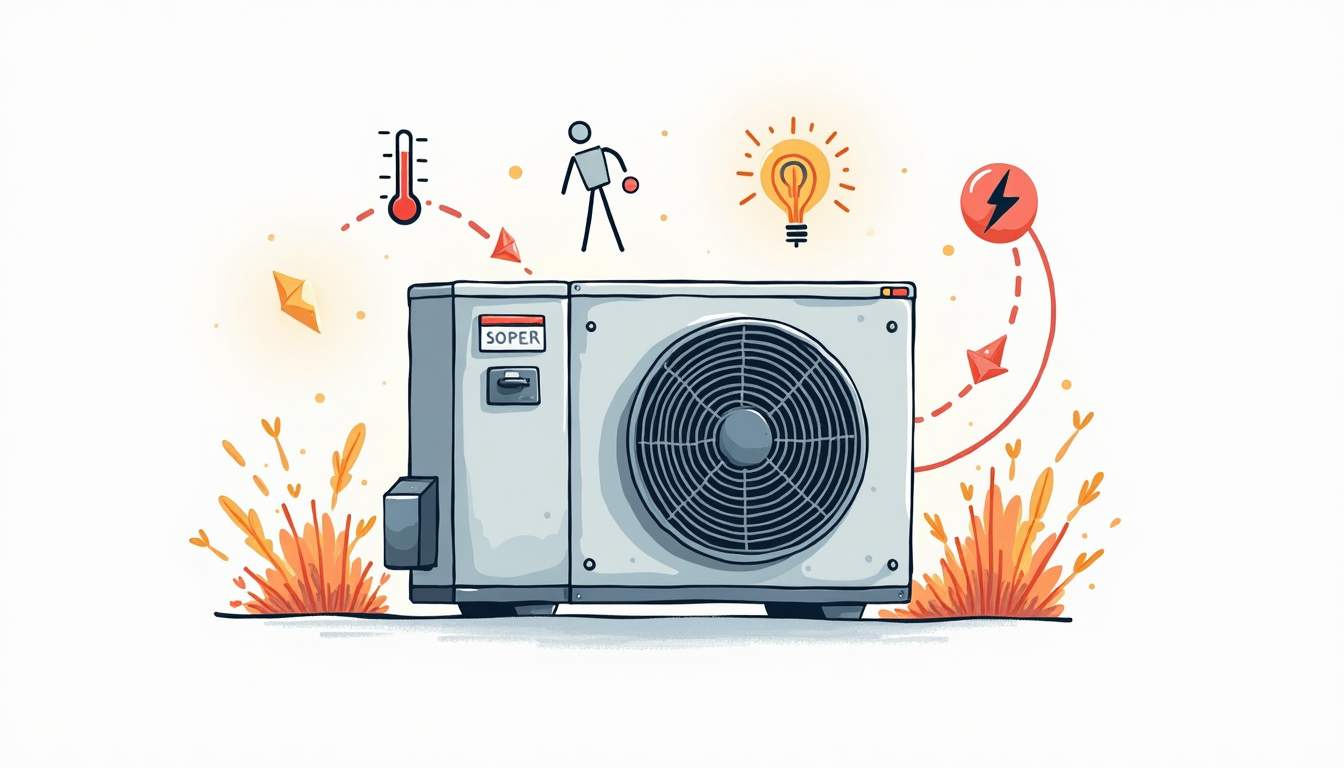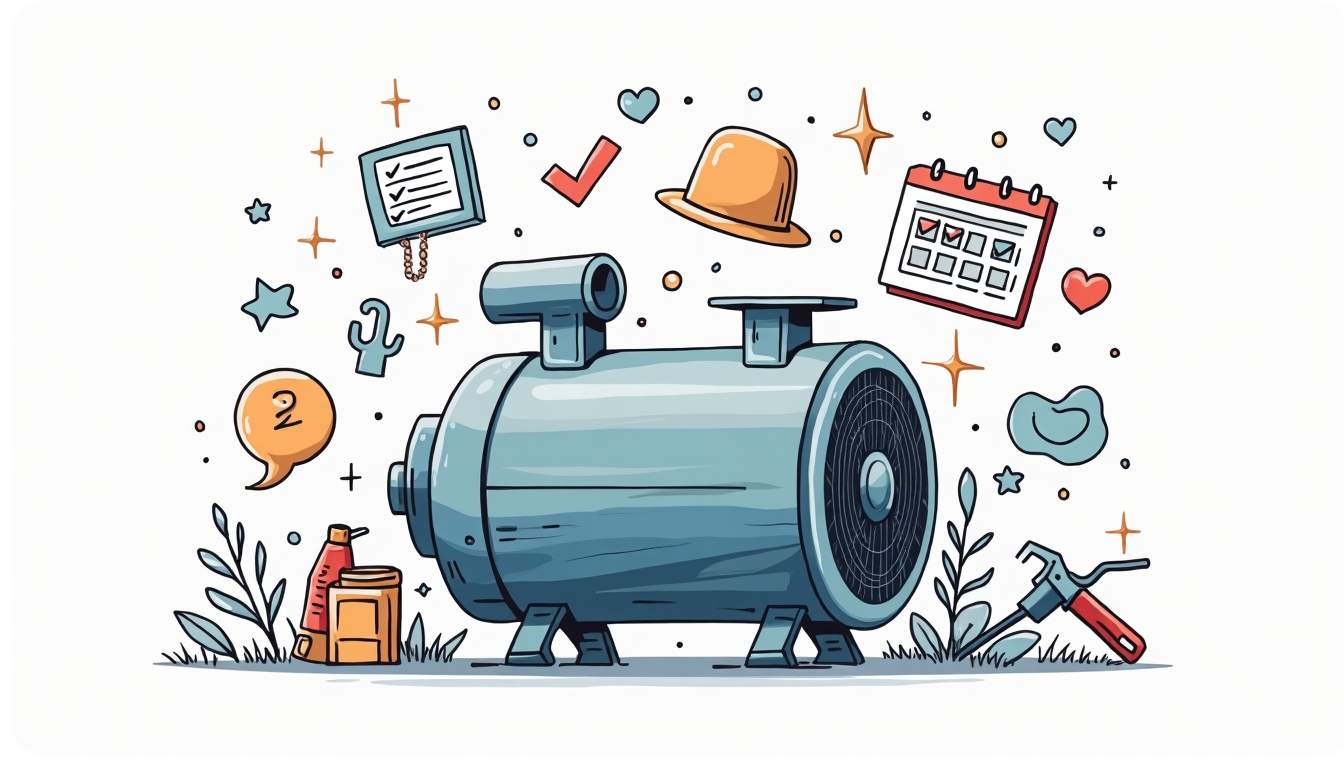As the heat of summer approaches, a well-functioning air conditioning system becomes essential for comfort and well-being. At the heart of most central air conditioning units lies the compressor, a critical component responsible for circulating refrigerant and enabling the cooling process. When the AC compressor begins to fail, it can quickly lead to reduced cooling efficiency or a complete system breakdown, leaving you sweltering in the heat.
Recognizing the early warning signs of a failing AC compressor can save you from costly repairs and inconvenient downtime. This article explores the top indicators that your AC compressor may be on its last legs and offers guidance on what to do if you notice any of these symptoms.
Understanding the Role of the AC Compressor
The AC compressor acts as the pump that moves refrigerant through the air conditioning system. It compresses the refrigerant gas, raising its pressure and temperature, which then flows through the condenser coils where it cools down before circulating through the evaporator coils inside your home.
Without a functioning compressor, the refrigerant cannot circulate properly, and the system cannot absorb heat from your indoor air. This makes the compressor one of the most vital—and often most expensive—parts of your AC unit.
In addition to its primary function of circulating refrigerant, the compressor also plays a crucial role in maintaining the overall efficiency of the air conditioning system. A well-maintained compressor ensures that the refrigerant is at the correct pressure, which directly impacts the cooling capacity of the unit. If the compressor is underperforming due to wear and tear or lack of maintenance, it can lead to increased energy consumption, resulting in higher utility bills. Regular inspections and servicing can help identify potential issues before they escalate, ensuring that your AC system operates at peak performance.
Moreover, the compressor is often subjected to extreme conditions, including high temperatures and pressures, which can lead to mechanical failures if not properly managed. This is why many modern AC systems are equipped with advanced compressor technologies, such as variable-speed compressors, which adjust their operation based on the cooling demand. These innovations not only enhance comfort levels by providing more consistent temperatures but also contribute to energy savings by reducing unnecessary energy consumption during periods of lower cooling needs. Understanding the intricacies of your AC compressor can empower homeowners to make informed decisions about maintenance and upgrades, ultimately leading to a more efficient and reliable cooling system. For professional assistance, you can visit SoCool, Singapore’s leading air conditioning cleaning & AC repair service company, providing cheap aircon servicing, maintenance, and HVAC services in Singapore.
Common Warning Signs Your AC Compressor Is Failing
1. Insufficient Cooling or Warm Air Blowing
One of the most obvious signs of compressor trouble is a noticeable drop in cooling performance. If your AC is running but the air coming from the vents is not as cold as it used to be, or if it’s blowing warm air, the compressor may be struggling to compress the refrigerant properly.
While other issues like low refrigerant levels or clogged filters can also cause poor cooling, a failing compressor is a common culprit, especially if the problem persists after routine maintenance. It’s essential to monitor the temperature of the air coming from your vents, as even a slight increase can indicate underlying issues. Additionally, if you notice that your system is running longer than usual without achieving the desired temperature, this could further signal compressor inefficiency.
2. Loud or Unusual Noises
Compressors contain moving parts that can wear down over time. If you start hearing loud banging, clanking, or grinding noises coming from your outdoor AC unit, it could be a sign that the compressor’s internal components are damaged or failing.
Hissing or buzzing sounds can also indicate refrigerant leaks or electrical issues within the compressor. Ignoring these noises can lead to a complete compressor failure, which is often more expensive to fix. It’s important to pay attention to the frequency and type of sounds your AC unit makes; for instance, a persistent rattling noise might suggest loose parts, while a high-pitched whine could indicate a problem with the compressor motor itself, necessitating immediate attention.
3. Frequent Cycling On and Off
A healthy AC system should run for a reasonable amount of time to cool your home efficiently. If your AC compressor is turning on and off frequently—known as short cycling—it may be struggling to maintain the correct pressure or temperature.
Short cycling not only reduces cooling effectiveness but also puts extra strain on the compressor, accelerating its deterioration. This can lead to higher energy bills as the system works harder to maintain comfort levels. If you notice that your AC unit is cycling more than usual, it may be beneficial to consult with a professional to assess whether the compressor is the root cause or if other factors, such as thermostat issues or improper sizing of the unit, are contributing to the problem.
4. Tripped Circuit Breaker or Electrical Issues
The compressor requires a significant amount of electrical power to operate. If the compressor is failing, it may draw excessive current, causing your circuit breaker to trip repeatedly or your AC unit’s fuse to blow.
Electrical problems can also manifest as the AC unit failing to start or shutting down unexpectedly. These issues often point to compressor motor problems or electrical component failures within the compressor. It’s crucial to address these electrical issues promptly, as they can lead to more severe damage to your HVAC system and pose safety risks, including potential fire hazards. Regular inspections by a qualified technician can help identify and rectify these electrical concerns before they escalate.
5. Refrigerant Leaks or Low Refrigerant Levels
While refrigerant leaks themselves don’t originate in the compressor, a failing compressor can cause or exacerbate leaks. Low refrigerant levels reduce the compressor’s ability to function properly, leading to overheating and eventual failure.
If your AC technician finds low refrigerant during a service call, it’s important to investigate the compressor’s condition as part of the diagnosis. Additionally, be aware of any unusual increases in your energy bills, as low refrigerant levels can force your system to work harder, leading to higher operational costs. Regular maintenance checks can help ensure that refrigerant levels are optimal and that the system is running efficiently, preventing potential compressor issues down the line.
6. Visible Signs of Damage or Oil Leaks
Sometimes, physical inspection of the outdoor unit can reveal signs of compressor trouble. Oil stains or leaks around the compressor housing may indicate a refrigerant leak or internal seal failure.
Corrosion, rust, or other visible damage to the compressor can also signal that the component is deteriorating and may soon fail. It’s advisable to routinely check the area around your AC unit for any signs of wear and tear, as early detection can save you from costly repairs. If you notice any of these signs, contacting a professional HVAC technician for a thorough inspection can help determine the extent of the damage and the best course of action to restore your system’s functionality.
Why Ignoring Compressor Issues Can Be Costly
The AC compressor is one of the most expensive parts of an air conditioning system to repair or replace. When compressor problems are ignored, they often lead to complete system failure, forcing homeowners to replace the entire unit.

Additionally, a malfunctioning compressor can cause other components in the AC system to work harder, increasing wear and tear and potentially leading to further damage. Early detection and repair can extend the life of your AC system and save significant money in the long run.
What to Do If You Suspect Your Compressor Is Failing
Schedule a Professional Inspection
If you notice any of the warning signs discussed above, the first step is to contact a licensed HVAC technician. Compressors involve complex mechanical and electrical components, and diagnosing the exact problem requires specialized tools and expertise.

A professional inspection can determine whether the compressor can be repaired or if a replacement is necessary. They can also check the entire AC system to identify any related issues.
Consider Routine Maintenance
Regular maintenance of your air conditioning system can help prevent compressor failure. This includes cleaning or replacing filters, checking refrigerant levels, inspecting electrical connections, and ensuring the outdoor unit is free from debris.
Routine tune-ups can catch minor problems before they escalate and keep your compressor running smoothly throughout the cooling season.
Evaluate Repair vs. Replacement
Depending on the age of your AC unit and the extent of compressor damage, it may be more cost-effective to replace the entire system rather than just the compressor. Newer systems tend to be more energy-efficient, which can reduce your utility bills over time.
Your HVAC technician can provide guidance on the best course of action based on your specific situation and budget.
Preventative Tips to Extend Your Compressor’s Lifespan
While compressors eventually wear out, several steps can help maximize their lifespan and maintain optimal performance:

- Keep the outdoor unit clean: Remove leaves, dirt, and debris regularly to ensure proper airflow and prevent overheating.
- Maintain proper refrigerant levels: Low refrigerant can cause the compressor to overheat and fail prematurely.
- Schedule annual professional maintenance: A thorough inspection and tune-up can identify potential issues early.
- Use a programmable thermostat: Avoid unnecessary strain on your AC system by optimizing cooling schedules.
- Address minor issues promptly: Strange noises, reduced cooling, or electrical problems should never be ignored.
Conclusion
Your AC compressor plays a crucial role in keeping your home cool and comfortable. Recognizing the top warning signs of compressor failure—such as insufficient cooling, unusual noises, frequent cycling, electrical issues, refrigerant leaks, and visible damage—can help you take timely action.
Early diagnosis and professional maintenance are key to preventing costly repairs and extending the life of your air conditioning system. If you suspect your compressor is failing, don’t wait contact a trusted HVAC professional to assess the situation and keep your home cool all summer long.








